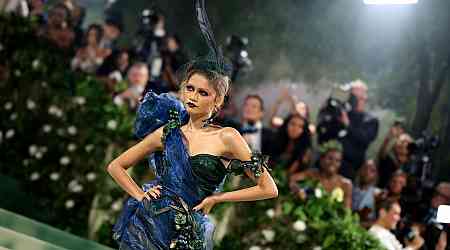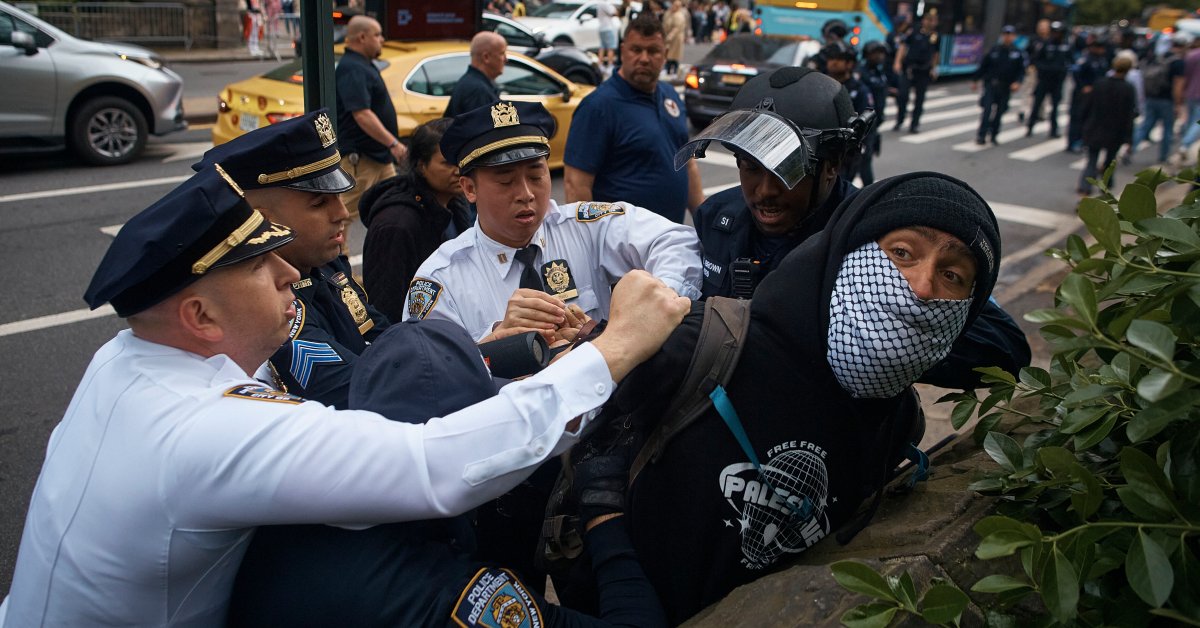|  | | Thursday, April 29, 2021 | Long before an inaugural poem shot her to fame,
We were telling you this OZY Genius’ name —
Amanda Gorman and many other poets
Are rocking the world of verse as you know it. Join us as we celebrate National Poetry Month. |
| Kate Bartlett, Senior Editor |  |
|
|
|  |
|
| 1. Ife OlatonaThis Nigerian teen from the bustling city of Lagos is now a sophomore at Howard University studying the most unpoetic of subjects: chemical engineering. But he has been writing poems as a way of expressing himself since he was 12, and he’s already gaining accolades, including being named a top young poet by The Poetry Society. “I think many young adults of today, even before the pandemic, hit a point where they had to navigate through the mechanics of identity, and the frailty of life,” he tells OZY, which might be why more members of Gen Z are turning to verse. Also, he notes, “Seeing poets like Amanda Gorman at a presidential inauguration does encourage their interest.” |
| 2. Kosal KhievThe son of Cambodian refugees, Khiev grew up in California, where he got pulled into gang life as a teenager. At 16, he was convicted of attempted murder and spent the next 14 years in prison, some of it in solitary confinement, where he got into poetry. “I was on the edge of madness, rage, anger and loneliness, and poetry showed me another way ... another perspective, so to speak,” he tells OZY. After his release, Khiev was promptly deported to Cambodia, a country he didn’t know. Now 41, he is known for holding regular poetry events in Phnom Penh and has also performed at a cultural festival in London connected to the 2012 Olympics. |
| 3. Koleka PutumaThis 28-year-old queer feminist poet from South Africa writes about the pandemic of violence against women in her country and the oppression faced by women worldwide. A book of her powerful poems entitled Collective Amnesia has been translated into numerous languages. She is also a playwright who started a company producing the work of Black queer female creatives. Here’s an example of Putuma’s subversive verse from her poem “Water ”: “For all we know / the disciples could have been queer, the holy trinity some weird twisted love triangle / And the Holy Ghost transgender.” |
| 4. Zheng XiaoqiongPoetry sometimes gets labeled elitist, which is unfair given that it’s entertainment, and once pretty bawdy entertainment at that (think TV for the masses), from Shakespeare’s sonnets to Dante’s Inferno. This female Chinese poet was born in rural Sichuan, traveled to Guangdong Province to work as a migrant in a metal factory, and her poems couldn’t be less elitist: They shed light on the brutal working conditions she experienced. The 40-year-old is now one of the most highly regarded living Chinese poets, known for her linguistic complexity. Zheng has even inspired a new genre of Chinese verse: migrant worker poetry. |
| 5. Mecca VerdellThis Gen Z poet from Baltimore is making waves in the slam scene. Performing under the stage name Meccamorphosis, she slams about charged social issues such as racism and sexual assault. And people are paying attention. Verdell has already won numerous competitions, including the Southern Fried Poetry Slam — twice. She inserts humor into her writing — check out her poem “Duck You Autocorrect” — but also addresses sorrow in verse like “Petty” about her strained relationship with her father. |
| 6. Len PennieA poem she posted on Twitter called “I’m No Havin’ Children'' catapulted this 21-year-old to stardom. The student from Fife, Scotland, has been hailed for writing partly in Scots, which she grew up speaking at home but is a dying language and derided by critics as slang. Pennie, with cascades of striking red hair, said she wrote the poem because “if I don’t talk to my future weans like my mammy talks to me, and like her mammy talked to her, then all these wonderful words will be lost.” |
|
|
|
On Clubhouse: Join OZY editors and writers today at 6 p.m. PT/9 p.m. ET on the Clubhouse app for a deep dive into the CDC’s new mask rules, India’s COVID-19 crisis and more. Write to OZY reporter Joshua Eferighe here so he can pull you into the room, and follow him @Eferighe. |
|  | Daily Harvest stocks your home with thoughtfully sourced, chef-crafted food built on real fruits and vegetables. Everything is delivered directly to your door and ready to enjoy in minutes. Your only job is deciding what to eat. Daily Harvest works with farmers they actually know to grow the best produce, harvest it at the right time, and freeze it within 24 hours to lock in amazing flavor and unmatched nutrition. There are no refined sugars, gluten, fillers, preservatives or anything artificial. With over 85 options, there’s something for every craving, dietary preference and time of day, so check out their smoothies, soups, flatbreads and more, with new recipes introduced every few months. Get $25 off your first box with code OZY today. |
|
|
|
poetic traditions around the world |
|  | 1. AfghanistanIf poetry is a means of coping and making sense of the world, then it should be no surprise it’s long been popular in this war-torn land. Thirteenth-century Persian poet Rumi is still considered one of the greats, but it’s young Afghan women who are taking the art form to new heights on Telegram and Facebook. Some Kabul University students have been holding virtual poetry sessions since the pandemic began, many of them using pseudonyms to avoid online harassment. With an adult literacy rate of just 43 percent, the most popular approach to verse is an oral form called landays. Often sung to the beat of a drum, landays were briefly banned by the Taliban. “All generations have been witness to war in Afghanistan,” says Lima Aafshid. “Poetry offers a means for us to release our stress.” |
| 2. MyanmarSatirical slam poetry known as thangyat has long been beloved in Myanmar, but now anti-coup protesters are using the art form, sometimes meshed with hip-hop, as a way to poke fun at the generals responsible for the Feb. 1 putsch and arrest of civilian leader Aung San Suu Kyi. Thangyat is typically performed during the Burmese new year in April but was banned for decades under the military junta — and finally allowed in 2016 when Suu Kyi came to power. Poetry reading was even used recently to try and bring Buddhists and Rohingya Muslims together. But such expression is under threat again as the military cracks down on dissent. At least nine poets have been detained and two have been killed in recent weeks. |
| 3. South AfricaU.S. presidents occasionally invite poets to their inaugurations, but almost no major South African political event is complete without a reading. The poets usually list the (sometimes dubious) achievements of the politicians themselves. But every opening of Parliament and State of the Nation address employs an imbongi, the Xhosa name for praise poets, who were historically meant to follow kings and chiefs, singing their praises. While the role has been reserved for men, former president Jacob Zuma broke with tradition at his annual address in 2015, featuring a female praise poet for the first time. |
| 4. BelarusWomen were at the forefront of the protest movement in Europe’s last dictatorship, turning up week after week dressed in white, carrying flowers and singing old lullabies, despite brutal police crackdowns. Belarus-born poet Valzhyna Mort released her book, Music for the Dead and Resurrected, during last year’s demonstrations, and the Cornell assistant professor has repeatedly spoken out in support of the protesters. In neighboring Russia, Galina Rymbu, a female Siberian poet, recited a new protest poem at an online poetry marathon in support of the Belarusian opposition. |
| 5. JapanPoets have always taken inspiration from nature, with John Keats writing an ode to autumn and William Wordsworth waxing lyrical over spring daffodils. In Japan, poets have been writing haikus with kigo, about the changing of the seasons, since at least the 10th century, but climate change is making even this tradition harder. Japanese poets often write about sakura, or cherry blossom season, but this year the trees in Kyoto were in full bloom on the earliest date in some 1,200 years. And a poem about typhoons is supposed to evoke autumn, says poet Miyashita Emiko, but now they can also occur in spring or winter. |
| 6. Central and West AfricaYou might know Chad because it’s a U.S. ally fighting Islamist insurgents, but you probably don’t know it for its slam poetry. Let’s rectify that. A growing group of Chadian millennials are taking on the country’s many social ills, like corruption and inequality, with slam poetry. There are even a number of slam poetry festivals and contests, most of them in French, the colonial language. And in another Francophone African country, Ivory Coast, female slam poets are using the medium to address sexual violence and female genital mutilation |
|
|
|
how wine drinkers are shaping the industry |
|  | We’re giving you a hint on what’s changing the world of wine — Bright Cellars. Wine drinkers want wine suited to their unique taste preferences in mind, not the wines that some snobby expert thinks they should be drinking. That’s why Bright Cellars sources its wines based on what their members want, so you’re always sure to love your monthly matches. With an exclusive $45 off for OZY readers, buy the wine that you actually want. |
|
|
|
 | TED or Coachella? Why not both?! This May 15-16, join us for a virtual celebration of bold change and big ideas at OZY Fest. Find out why CNBC calls it “the new SXSW” by spending a weekend with game-changers and change-makers who are ahead of their time and worthy of yours — from Dr. Fauci and Condoleezza Rice to Sevyn Streeter, Tig Notaro, Mark Cuban, Kat Cunning and more. Don’t miss out — register now. |
|
|
|
|  | 1. Instagram PoetryIndian Canadian Rupi Kaur’s Instagram video readings of her sensual poems have gained her both accolades and derision. The 28-year-old, with more than 4 million followers, has been dubbed “Queen of the Instapoets” by Rolling Stone magazine. Her debut collection, Milk and Honey, is a New York Times bestseller and has become the biggest-selling poetry book of all time, surpassing Homer’s The Iliad. Some academics say Instapoetry resonates with millennials because it is relatable and democratic — anyone can self-publish on the app, so anyone can have a voice. |
| 2. TikTok PoetsA new generation is turning to TikTok to share their poetry, with North Carolina native Ayanna Albertson’s poems attracting millions of views. Now in her late 20s, Albertson, who placed second in the 2020 Women of the World Poetry Slam, says she got into performing at a young age. Her work touches on issues of race and gender and is often overtly political, like her poem “Gun Control & Vaginas, ” in which she slams: “I can’t help but wonder when the men in Congress grew vaginas, how they got so much to say about mine.” |
| 3. Poetry PodcastsPodcasts have been a lockdown staple for many, but for those who wanted to get away from hard news about virus deaths and other heavy topics, poetry podcasts were a lifesaver. Poetry Unbound, with Irish host Pádraig Ó Tuama, appears to have gained particular traction, with 15-minute episodes from Monday to Friday promising to be both “contemplative and energizing.” Episodes have included an eclectic mix of poets, with one focusing on the work of the Oglala Lakota poet Layli Long Soldier and another on queer Chinese American writer Chen Chen. |
| 4. Dear VaccineThink you can put a rhythmic spin on the pandemic? Have a go at contributing to the global vaccine poem! This project was set up by Arizona and Kent State universities as a worldwide collaboration allowing people to share their feelings about the coronavirus. By following a few prompts online written by Young People’s Poet Laureate Naomi Shihab Nye, you can compose and submit your own stanza. So far, people from every state and more than 50 countries have participated. |
| 5. Where to Get Your FixSo now you’re inspired and want to drink from Apollo ’s cup? Check out this new anthology of spoken-word poetry from Australia and New Zealand that includes Indigenous writers, as well as this collection of intersectional poetry aimed at nonbinary, trans and cisgendered girls. You can even try your hand at the art, with the National Poetry Month participatory event “Poem in Your Pocket” taking place today. Or, just sit back and watch the pros at the Academy of American Poets’ annual gala, co-chaired by Meryl Streep and free online today.
|
|
|
|
|



































